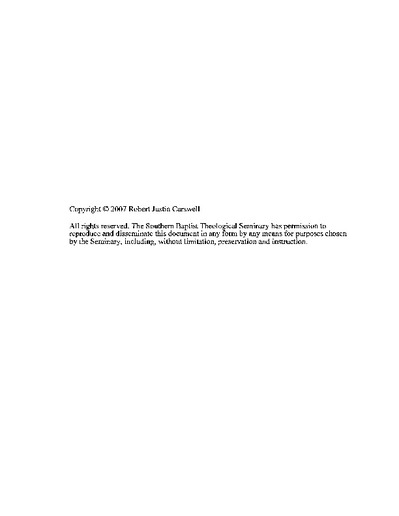A comparative study of the religious epistemology of Carl F. H. Henry and Alvin Plantiga
Subject
Knowledge, Theory ofPlantinga, Alvin
Henry, Carl F. H.--(Carl Ferdinand Howard),--1913-2003
Abstract
This dissertation compares the religious epistemology of Carl F. H. Henry and of Alvin Plantinga. Chapter 1 briefly examines the impact of the Enlightenment and its subsequent developments upon religious epistemology and provides an overview of the thought of Carl F. H. Henry and of Alvin Plantinga.
Chapter 2 examines the religious epistemology of Carl F. H. Henry with specific attention to the development of his religious epistemology within the Augustinian tradition and his conception of the Logos doctrine as an essential component of religious epistemology. Chapter 3 examines the important critiques of Henry's religious epistemology.
Chapter 4 examines the religious epistemology of Alvin Plantinga, with specific attention to the development of his religious epistemology within the Augustinian tradition and the development of the concept of warranted Christian belief. Chapter 5 examines several important critiques of Plantinga's religious epistemology.
This dissertation concludes that the works of Henry and Plantinga are important for contemporary discussions of theological method and religious epistemology within evangelical theology. Specifically, the connection that is evident in Henry and Plantinga's work between the ability of humanity to know God and the special status of humanity as bearing the image of God could be the core idea which serves as the epistemological application of the ontological reality of God's existence.

